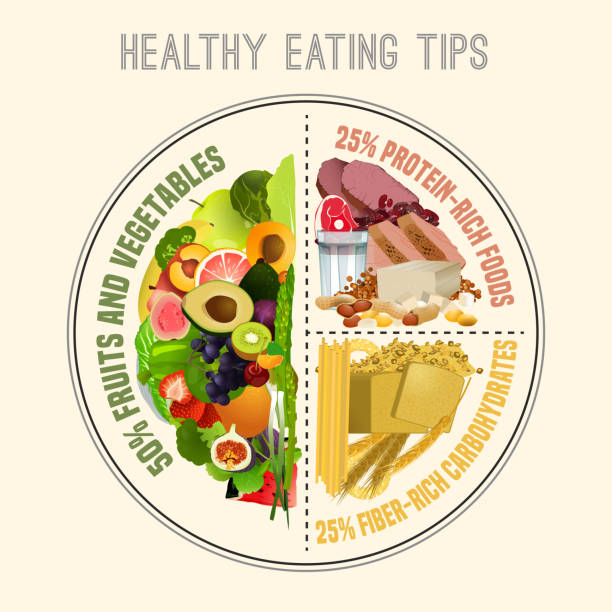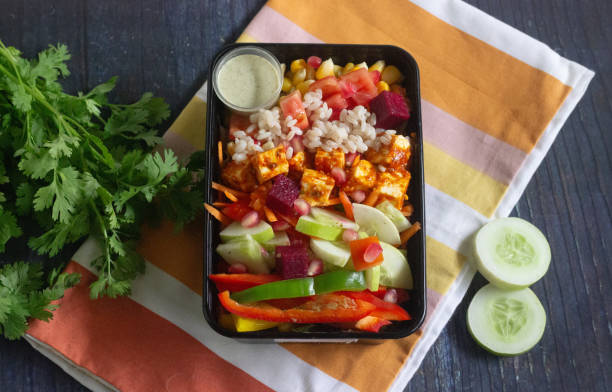Snacking is an integral part of our daily diet, providing energy and keeping hunger at bay between meals. However, it’s easy to overindulge, which can lead to weight gain and disrupt overall health goals. Mastering portion control tips for snacking is crucial for maintaining a balanced diet and a healthy lifestyle. This article offers practical tips and strategies to help you manage your snack portions effectively.
Understanding Portion Control

Portion management refers to controlling how much food you eat at one time. For snacks, this means eating just enough to satisfy your hunger without overeating. Proper portion control helps prevent excessive calorie intake and contributes to better weight management.
Tips for Effective Portion Control

1. Use Smaller Plates and Bowls
Opt for smaller plates and bowls when serving snacks. This simple trick can help you visually perceive a larger portion, making it easier to feel satisfied with less food. Studies show that people tend to eat more when using larger dishes, so downsizing can effectively curb overeating.
2. Pre-Portion Snacks
Instead of eating directly from the package, which can lead to overeating, pre-portion your snacks into smaller containers or bags. This way, you have a clear idea of how much you’re consuming and can avoid the temptation to go back for more.
3. Read Nutrition Labels
Nutrition labels provide valuable information about serving sizes and calories per portion. Familiarize yourself with these labels to make informed choices and stick to recommended portion sizes. This practice helps you stay within your caloric limits and ensures balanced nutrient intake.
4. Practice Mindful Eating
It means focusing your entire attention on the food while you eat mindfully. Focus on the taste, texture, and aroma of your snacks, and eat slowly. This approach allows you to savor your food and recognize when you’re full, reducing the likelihood of overeating.
5. Incorporate Protein and Fiber
Snacks that are high in protein and fiber can help keep you fuller for longer. Incorporate foods like Greek yogurt, nuts, seeds, and fruits into your snacks. These nutrient-dense options not only satisfy hunger but also provide essential nutrients, making it easier to control portion sizes.
6. Avoid Eating from the Bag
When snacking from a large container or bag, it’s easy to lose track of how much you’ve eaten. Instead, portion out a reasonable amount into a small bowl or plate before eating. This practice helps you stay mindful of your portions and prevents mindless snacking.
7. Stay Hydrated
Sometimes, thirst can be mistaken for hunger. Drinking water regularly throughout the day can help you distinguish between genuine hunger and dehydration. Before reaching for a snack, try drinking a glass of water to see if your cravings subside.
8. Choose Nutrient-Dense Snacks
Opt for snacks that are rich in vitamins, minerals, and other essential nutrients. Instead of sugary or processed snacks, choose whole foods like fruits, vegetables, nuts, and seeds. These options not only support overall health but also help manage portion sizes more effectively.
9. Plan Your Snacks
Planning your snacks ahead of time can help you make healthier choices and control portions. Create a snack schedule or prepare a variety of healthy snacks in advance. Having a plan reduces the likelihood of impulsive eating and helps you stay on track with portion control.
10. Be Mindful of Emotional Eating
Emotional eating can lead to overindulging in food as a coping method for stress or boredom. Acknowledge your emotional triggers and come up with alternate strategies to deal with them, like participating in physical activity or practicing relaxation techniques. Addressing the root causes of emotional eating can improve portion control and overall well-being.
11. Incorporate Portion Control Tools
Consider using portion control tools such as measuring cups, food scales, or portion control plates. These tools can help you accurately measure your snacks and adhere to recommended portion sizes. They provide a visual reference and promote more precise portion control.
12. Avoid Eating While Distracted
Eating while watching TV, working, or engaging in other distractions can lead to mindless snacking and overeating. Focus on your snack and enjoy it without multitasking. Creating a mindful eating environment enhances your awareness of portion sizes and overall eating habits.
Conclusion
Mastering portion control for snacking is a vital aspect of maintaining a balanced diet and achieving your health goals. By implementing these practical tips and strategies, you can effectively manage your snack portions, prevent overeating, and promote overall well-being. Remember, Portion control tips for snacking is not about deprivation but about making mindful choices that support your health and wellness journey.
Frequently Asked Questions
1. How can I tell if I’m eating the right portion size for snacks?
The right portion size depends on the type of snack and your dietary goals. Generally, a portion should satisfy your hunger without leading to excess calorie intake. Using measuring tools, reading nutrition labels, and being mindful of hunger cues can help you determine appropriate portion sizes.
2. What are some easy ways to practice portion control when eating out?
When eating out, ask for a take-home box with your meal and portion out half of your dish immediately. You can also share dishes with others or choose smaller appetizer-sized portions. Pay attention to the restaurant’s serving sizes and try to eat slowly to gauge your fullness.
3. Are there any snacks that are particularly good for portion control?
Snacks high in protein and fiber, such as Greek yogurt, fresh fruit, vegetables with hummus, and nuts, are excellent for portion control. They keep you fuller for longer and are less likely to lead to overindulgence.
4. How can I avoid emotional eating that leads to overeating?
Determine your triggers and seek out healthy coping mechanisms, like working out, practicing meditation, or taking up a hobby, to prevent emotional eating. Keeping a food journal to track your eating patterns and emotions can also help you understand and address emotional eating.
5. Can portion control help with weight management?
Yes, Portion control tips for snacking is a key factor in weight management. By eating appropriate portion sizes, you can manage calorie intake more effectively, prevent overeating, and maintain a healthy weight.





